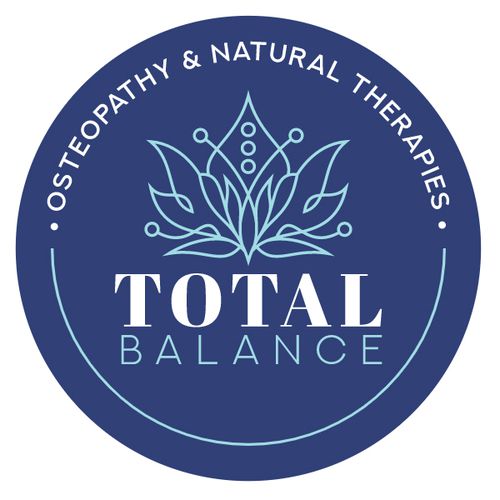
The phenomenal growth of natural health care and natural care products is testament to the fact that people are looking for more control over their health, largely out of a desire to have a holistic, non-invasive approach to getting and staying healthy – while being directly involved in the process. This is in contrast to the conventional Western medical approach that tends to keep patients at arms length, treating symptoms rather than the root or underlying cause of a health problem. The ntpages took the time to catch up with David Stelfox of Endeavour College, a regular media contributor who heads up the Remedial Therapies department – for his insights on the many benefits of these modalities.
What natural therapies or modalities can be called a remedial therapy?
"The main modalities represented under the umbrella term "remedial therapies" are relaxation massage, remedial or therapeutic massage, reflexology and aromatherapy. Traditional Chinese massage (Tui na), Shiatsu and Traditional Thai massage are also sometimes referred to as "remedial therapies". Some people also include things like trigger point therapy, lymphatic drainage massage, myofascial release and deep tissue massage as remedial therapies. However, these are more accurately described as techniques that a remedial therapist may incorporate in the management of a client, rather than stand alone therapies or modalities."
How do you account for the popularity of natural therapies?
"My experience is that, over the past 25 years, Australians have increasingly demanded to know more about their health conditions and how they can participate in improving their state of health and wellbeing. Fewer people are satisfied with an approach to health care that only addresses signs and symptoms, often by way of drug therapy or surgery, and which does not include them in the management of their own health. I think that people are generally aware that their overall wellbeing is influenced by how they feel, their social life, their environment, by their mental health, and even the spiritual aspect of their life."
People appreciate the holistic approach of natural therapies?
"Natural therapies generally consider all of these things, and a big part of the appeal of natural medicine is that clients feel that the practitioner listens to their health narrative, provides them with information about their health, and empowers them to help themselves. But I believe that the major reason for the growth of natural therapies is because people aren’t entirely satisfied with the conventional medical model and are looking for an approach which is natural, safe and effective, and which also empowers them to help themselves."
Are natural therapies and conventional medicine natural bedfellows?
"I believe conventional medicine and natural medicine can complement each other. Combined together, health care consumers can receive an integrated approach to the management of their health. What is required for that to occur though is that practitioners of both conventional and natural medicine respect each other’s approach. An openness to, and an understanding of each other’s approach, a willingness to recommend and refer to each other’s services, and an appreciation that it’s what’s best for the client is essential from both sides. While conventional medicine has much to offer from the perspective of diagnostics, surgery and emergency care, it is relatively limited in its efficacy for managing chronic health conditions. This is where natural medicine excels. From the perspective of prevention, natural medicine also has so much to offer. So we need to get on with each other. Both approaches to health care, conventional and natural medicine have an important part to play in the health care system."
Which are some of the most common ailments encountered by a remedial therapist?
"Back and neck pain are perhaps the most common afflictions one encounters, together with injuries resulting from overuse or activities. Sports and exercise-related injuries are a common reason for people to seek the services of a remedial massage therapist. Most sporting bodies these days recognise the benefits of massage to the prevention and recuperation from sporting activities. Consequently remedial massage therapists are becoming a fixture of many sporting teams and clubs."
In terms of massage therapy, what benefits could a patient derive from a course of treatment?
"The most obvious benefits are the anatomical and physiological changes, but which may also impact on other elements including the emotional, mental and spiritual aspects of a client’s state. We’re not just our physical body and consequently massage therapy on the physical body inevitably influences these other aspects of our self. Increased vitality, calmness, a sense of general wellbeing, balance – these are some of the many "non-physical benefits of massage therapy."
What would a typical consultation with a remedial therapist (massage) involve?
"Firstly the therapist will take a full case history and this will be followed by a physical assessment to identify the nature and causative factors of the problem. Physical assessment skills are important, as is a good foundation in anatomy and physiology, in order to identify the source of the problem. The source of neck pain may be in another part of the body. An individual’s posture or the way they use their body to walk or run or carry out any type of physical activity (even sitting at a computer) can be a contributing factor to a musculoskeletal problem such as back and neck pain. Once the therapist has identified and understands the nature of the client’s presenting problem he or she will determine the most effective way of treating the problem."
So each client receives tailored treatment?
"Absolutely, everyone is unique and receives an individualised treatment plan. This may include any or a combination of remedial massage techniques (e.g. myofascial release, trigger point therapy, neuromuscular technique) and, depending on the practitioner’s training, stretching or exercise therapy, lifestyle modification, and even basic nutritional advice. Of course, for long-standing or significant musculoskeletal problems, a number of visits may be required and the therapist will reassess the client’s problem and the rate of progress, often modifying the treatment plan and techniques used along the way."
What skills does one need to be a competent therapist or practitioner?
"There is a range of knowledge and skills that are critical to success as a massage therapy practitioner. This includes knowledge of the human body, a theoretical understanding of the principles and techniques of massage, physical assessment, communication, and also skills in establishing and running a clinical practice as a business. And all these are important."
Find a remedial massage therapist in your local area.
|
Do you have a passion for Massage? Would you love to turn your passion for Massage into a rewarding career? Check out the information we have available on what the Massage course involves and thousands of other Natural Therapy Courses we have available online and throughout Australia. Why not let us help you find the right course for you today on 1300 924 960 |









